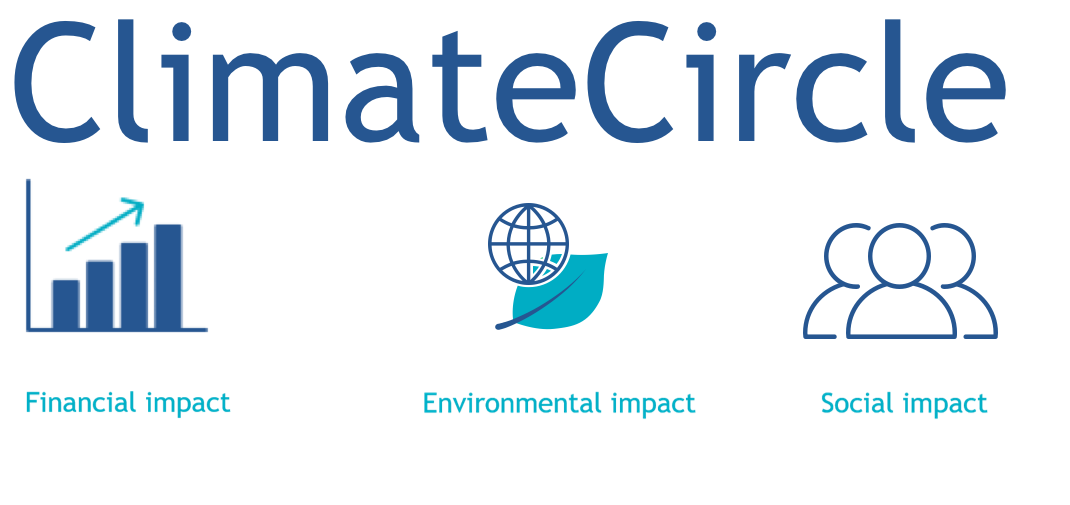Plastic waste counts for up to 10% of household garbage in cities in developing countries. Not to mention the plastic litter, which is not only unsightly, but contributes to malaria and water borne diseases by blocking drains. This is a ticking time bomb. But, by understanding the recycling value chain, you’ll realise that opportunities abound to build a profitable business that makes the world a better place. Inclusive profitable business meaning including the poor in the business process be it as producers or consumers.
As part of the incubator program we manage for Aqua for All and WASTE, every month we have Free Feedback Friday sessions where we provide feedback to entrepreneurs about their business plans. Sophie van den Berg, senior recycling advisor at Waste, joined us for a very popular Free Feedback Friday session on 27 March. Here we speak to her about the plastic recycling world, and give you a heads up about the next session.
AF: Why is plastic recycling attractive as business?
Sophie van den Berg: The value chain of plastic recycling consists of activities such as collecting, sorting, washing, compacting, transporting, grinding and recycling. Business opportunities exist in almost all of these activities.
For instance, developing countries where no local petrochemical companies exist spend a huge amount on foreign exchange each year on importing virgin plastic raw material. As an alternative, locally recycled plastic is cheaper and very attractive. However, the key issue here is the quality of the recycled material. So starting a business producing high quality recycled material has enormous opportunities in many countries, and for sure is a viable business. There is value in the plastic waste material, enough value to make your business a profitable one!
AF: What are the challenges in getting started in plastic recycling and how do you overcome them?
Sophie: There are many challenges in getting started and one of them is sourcing clean plastic waste material. Very often waste plastic ends up in the mixed waste on landfills and becomes very dirty. Start sourcing clean plastic at supermarkets, restaurants, industries and the like. Or even collect plastic waste from door to door or set up small plastic waste collection centres.
Starting this business does not require a lot of investment, but growing the business does, because equipment is needed such as balers, grinders and extruders. And to be able to clean dirty plastics very well, processing lines are needed which require considerable investment.
AF: What kind of innovation is needed in the business models of plastic recycling?
Sophie: In my opinion innovation is needed in many of the steps of the value chain. In sourcing plastic waste material innovation is needed to obtain cleaner material. Furthermore you need to set up small-scale plastic recycling facilities without using too much electricity and water – often a bottleneck for success. Being clever about how you sort the waste might include using manual labour as much as possible. And last but not least innovation is needed in product design and marketing. Low quality products are made out of recycled plastic and this affects the image of recycled products. In addition, work needs to be done to raise awareness that recycled plastic products are environmentally friendly and of a good quality.
AF: Where can you find inspiration for innovative models in plastic recycling?
Sophie: Get inspired to start a business in plastic recycling on the Practical Action website.
Kampala in Uganda is a nice example where many entrepreneurs started plastic recycling businesses.
An upcoming trend in plastic recycling is 3D printing. In India, for example, local pickers in Pune are trained to collect high-density polyethylene (HDPE) plastic waste and then shred, melt and convert that plastic into the strands of filament that are the feedstock for one of the world's promising technology industries: 3D printing.
Aqua for All, WASTE and Africa Funded joined forces to support entrepreneurs to develop and validate their innovative business models with a positive impact on water and sanitation for the poor. Free Feedback Friday is a registered concept of Africa Funded. It facilitates sharing the knowledge and expertise of WASTE and Aqua for All with entrepreneurs to develop sustainable solutions.
Next Free Feedback Friday session is dedicated to entrepreneurs with business plans that will increase access to water and sanitation for the poor and is scheduled at April 24th. Next session Free Feedback Friday on plastics will be announced in our calendar. To plan a slot, please connect with our Skype address Free Feedback Friday and mention WASH or Plastics.
News
Climate Circle
DEVELOP AND SCALE CLIMATE RELATED BUSINESS MODELS
Africa Funded enables entrepreneurs to start or grow their innovative concepts with expertise, network and seed funding. Mission of Africa Funded is to create jobs in Africa and enable people to increase their live standards in a way they want. We supported platforms like NCDO, VC4Africa in coaching entrepreneurs and developed very efficient ways to support entrepreneurs. This saves time and cost on the site of the entrepreneur and enables them to focus on the core business while we assist to minimize risks, align goals and speed-up processes, with the ultimate objective of making the project a success.
Africa Funded is the specialist in grant applications for businesses in Africa.
Business development media economy ICT Telecom Banking start-ups South Africa Nigeria Egypt Sudan Kenya Ghana Tanzania Uganda Liberia Sierra Leone Gambia Botswana Namibia Zimbabwe Malawi Mozambique Angola Mali Ivory Coast Cote d'Ivoire Algeria Morocco Congo Gabon Guinea Guinee Senegal Rwanda Burundi Lesotho Swaziland Cameroon Benin Togo Mauritania Libya Eritrea Ethiopia Djibouti Somalia Niger Chad Cairo Alexandria Khartoum Nairobi Kampala Dar es Salaam Lusaka Blantyre Lilongwe Harare Gaborone Windhoek Johannesburg Pretoria Cape Town Durban East London Port Elizabeth Harcourt Lagos Ibadan City Kano Abuja Accra Dakar Bamako Casablanca Alger Tunis Tunesia Tripoli Kinshasa Luanda Maputo Yaounde Douala Kumasi Tamale Jos Mombasa Addis Abeba Niamey Nouakchott Aswan Luxor Kaduna Freetown Monrovia Conakry
, Amsterdam, The Netherlands
